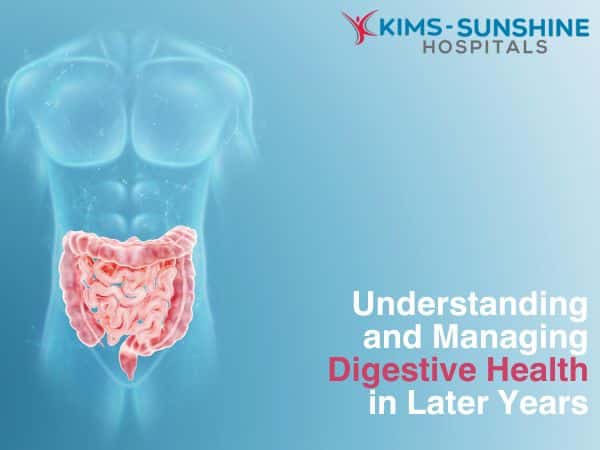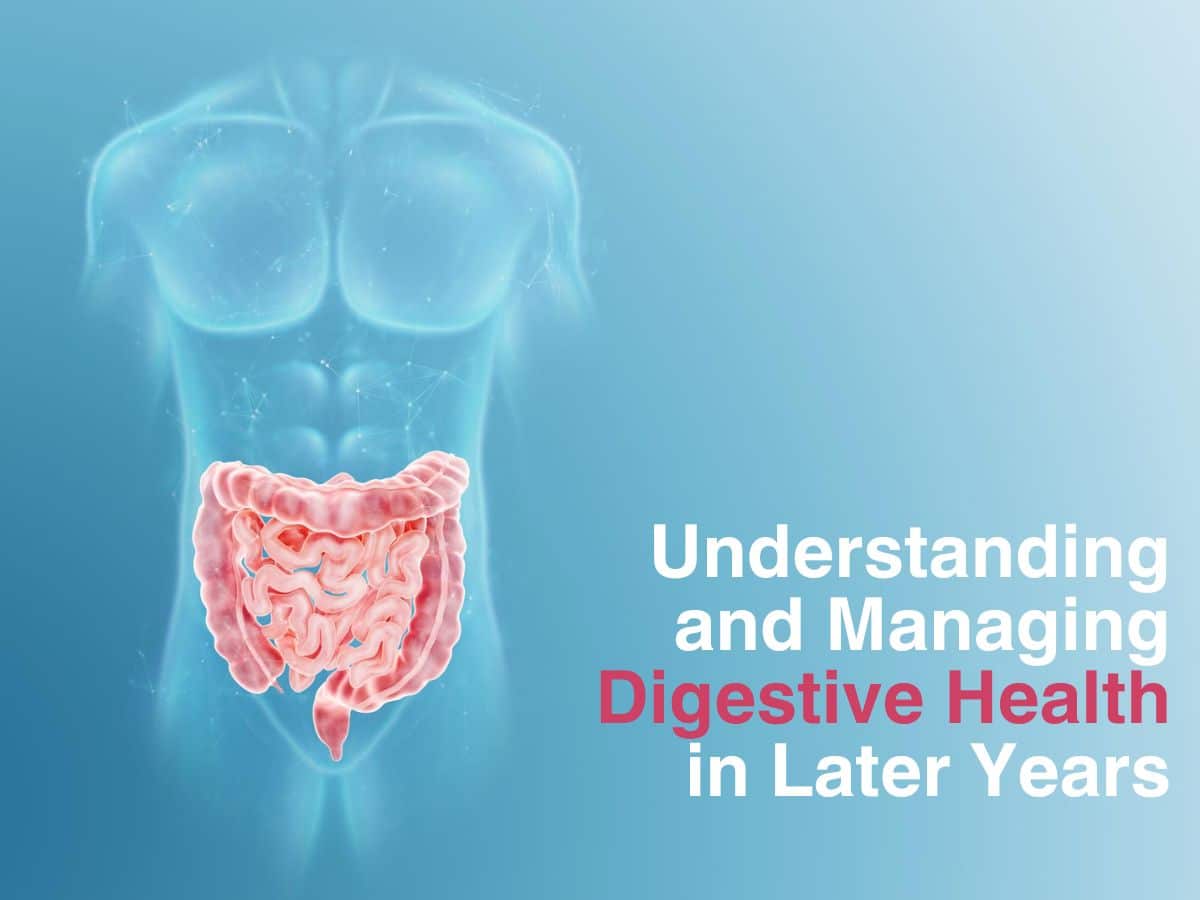
Understanding and Managing Digestive Health in Later Years

Our bodies are immensely powerful and intelligent machines that undergo several transformations as we age.
Our digestive system is no exception.
Aging can significantly impact the way we absorb nutrients, the way we produce digestive enzymes and even the overall function of the gastrointestinal tract.
In this blog, we’ll explore the effects of aging on digestive health and provide practical tips for maintaining a healthy gut as we grow older.
How Aging Impacts Digestive Enzymes Production
One of the most significant changes in our digestive system as we age is the decrease in the production of digestive enzymes.
These enzymes are crucial for breaking down food into nutrients that our body can absorb.
As we get older, our bodies produce fewer of these essential enzymes, which can lead to a variety of digestive issues.
The reduction in enzyme production can cause:
- Difficulty in breaking down certain foods
- Increased instances of indigestion and bloating
- Reduced nutrient absorption
This decline in enzyme production is a natural part of aging, but it’s important to understand its implications for our overall health and take steps to mitigate its effects.
Effects of Aging on Gastrointestinal Tract Function
Beyond enzyme production, aging affects the entire gastrointestinal (GI) tract. Some key changes include:
- Slowed motility: The movement of food through the digestive system often slows down, leading to constipation and other issues.
- Reduced acid production: The stomach may produce less acid, which can affect the breakdown of food and absorption of certain nutrients.
- Changes in gut microbiome: The balance of beneficial bacteria in the gut can shift, potentially impacting digestion and immune function.
- Weakened muscle tone: The muscles in the digestive tract may lose some of their strength and elasticity, affecting overall digestive efficiency.
Common Gastrointestinal Issues in the Aging Population
As a result of these changes, older adults often experience a range of digestive problems. Some of the most common issues include:
- Constipation: Managing constipation in older adults is a frequent concern, often due to reduced motility and decreased fluid intake.
- GERD (Gastroesophageal Reflux Disease): The weakening of the lower esophageal sphincter can lead to increased instances of acid reflux.
- Diverticulosis: The formation of small pouches in the colon becomes more common with age.
- Malabsorption: Due to reduced enzyme production and other factors, nutrient absorption can be compromised.
Impact of Aging on Nutrient Absorption in the Gut
The aging process can significantly affect how our bodies absorb and utilize nutrients. This is due to several factors:
- Reduced surface area in the small intestine
- Decreased blood flow to the digestive organs
- Changes in the gut microbiome
- Interactions with medications commonly taken by older adults
These changes can lead to deficiencies in essential nutrients like vitamin B12, calcium, and iron, making it crucial for older adults to pay special attention to their nutritional intake.
Natural Ways to Improve Digestion in Seniors
While we can’t stop the aging process, there are several natural strategies to enhance digestive health in old age:
- Stay hydrated: Adequate fluid intake is crucial for preventing constipation and maintaining overall digestive health.
- Eat a fiber-rich diet: Fiber promotes regular bowel movements and supports a healthy gut microbiome.
- Stay active: Regular exercise can help stimulate digestive function and promote overall gut health.
- Practice mindful eating: Eating slowly and chewing thoroughly can aid digestion and reduce discomfort.
- Consider herbal teas: Certain herbal teas like peppermint or ginger can aid digestion and soothe the GI tract.
The Role of Probiotics and Prebiotics in Elderly Digestion
Probiotics and prebiotics play a crucial role in maintaining a healthy gut microbiome, which becomes increasingly important as we age.
Probiotics are beneficial bacteria that can help:
- Improve digestion
- Boost immune function
- Reduce inflammation in the gut
Prebiotics, on the other hand, are types of fiber that feed these beneficial bacteria. Including both probiotics (through supplements or fermented foods) and prebiotics (through a diverse, plant-based diet) can significantly support digestive health in older adults.
Tips for Enhancing Digestive Health in Old Age
- Eat smaller, more frequent meals to ease the burden on your digestive system.
- Consider digestive enzyme supplements after consulting with a healthcare provider.
- Limit intake of foods that commonly cause digestive discomfort, such as spicy or fatty foods.
- Stay up-to-date with recommended health screenings to catch any potential issues early.
- Manage stress through techniques like meditation or yoga, as stress can negatively impact digestion.
Conclusion
While aging inevitably affects our digestive health, understanding these changes allows us to take proactive steps to maintain a healthy gut. By focusing on a balanced diet, staying active, and considering targeted supplements when necessary, we can support our digestive system and overall well-being as we age.
Remember, everyone’s digestive system is unique, and what works for one person may not work for another.
If you’re experiencing persistent digestive issues, it’s always best to consult with a healthcare professional for personalized advice and treatment.
By taking care of our digestive health, we can enjoy our golden years with greater comfort, vitality, and overall wellness.
Frequently Asked Questions

Dr. K. Sai Krishna
MBBS (Osmania), MD(Internal Medicine), DM(Gastroenterology)
Sr. Consultant Gastroenterologist & Hepatologist






